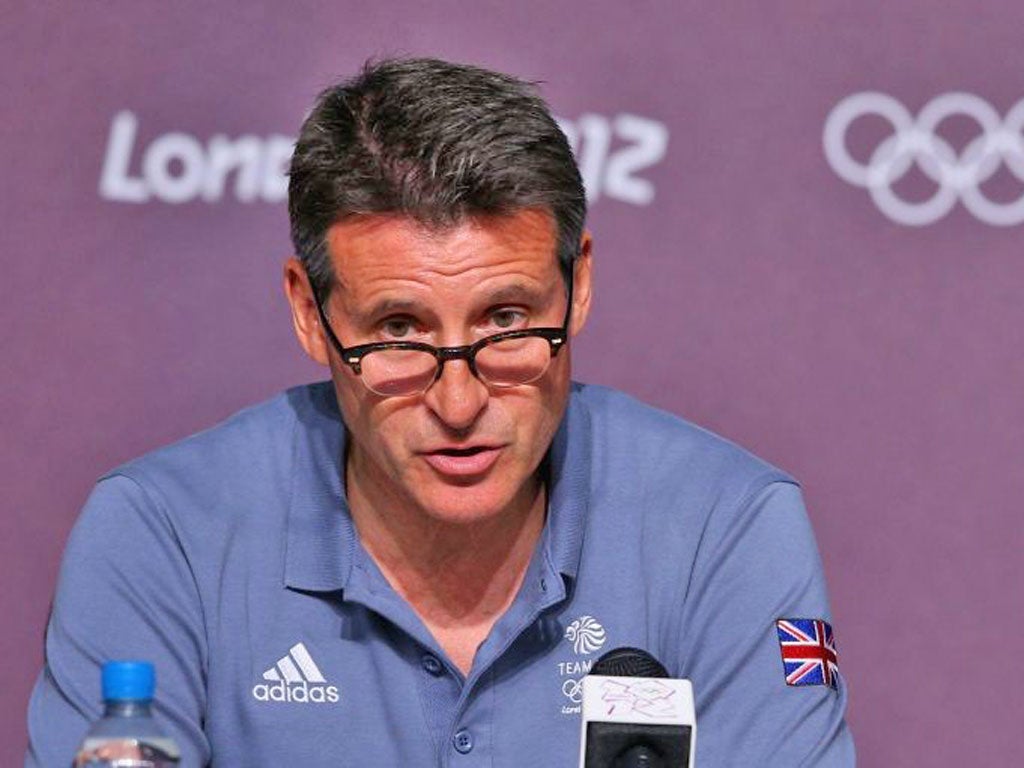Let Coe be the conscience of British sport

Those who are ancient enough to know say there have been three great explosions of national pride and joy since Germany was beaten in 1945 in what someone, in less politically correct days, described as their national game.
That provoked the first run-out-into -the-street outpouring when Victory in Europe was announced.
The second came 21 years later after the Germans were again defeated, this time at Wembley in the World Cup. It was written, "We haven't seen scenes like this in London since VE day."
Now we have the still potent eruption of emotion created by London 2012.
There have been a few other fringe candidates, including the pleasure when the Ashes were retrieved at The Oval in 2005 and two years earlier when England won the World Cup of rugby.
The point that has just been re-established so profoundly is that sport is quite important to the way the nation sees itself. Sport, let's face it, has just shown once again its extraordinary muscle out there in the street and while this shouldn't be to the detriment of all those artists and musicians and playwrights who are vital to a healthy, civilised society, there is certainly an argument for giving unto Caesar what is his due. This, seamlessly enough, brings us to Lord Coe, pictured, who rightly struck a triumphant note when the Olympic flame was doused on Sunday night.
There is talk of Coe becoming president of the IAAF, the ruling body of track and field, as maybe a trial run for the leadership of the Olympic movement. Heaven knows, he has established his credentials on and off the track, but from the national viewpoint – one which until recently had become jaded by the consistent international failure of the cannon-riddled flagship of football – the timing is surely perfect for him to develop his role as both the leader and maybe even the conscience of British sport. Nobody should want to see sport elevated to some Orwellian propaganda weapon of Government – real life goes on now, with all its usual pressures and fears – but the call should be that, outside the special circumstances of hosting an Olympics, there needs to be a recognition of how much work needs to be done to reverse the follies of the past.
The mistakes of selling off school fields, and crimping the time allowed for physical education in the state system, were still in flow when the London bid was landed and Tony Blair announced that it was a triumph for youth.
No, what we have seen is a victory for a superb group of elite athletes funded as never before on the run-in to the London Games. It was an approach that began before Beijing and drew some startling benefits. You could argue that those successes – the direct result of huge new investment – only underlined the fact that in the past there has been quite shameful neglect of the kind which, given the track record over the years, there is reason to fear might be repeated. Sixteen years ago in Atlanta, Britain gleaned one gold medal, but then at that point we hadn't lined up a potential political beanfeast. Now we are back in that position, and with initially depressing figures on the take-up of coaching programmes in areas of need, a key plank of the legacy argument.
The Prime Minister, given the current mood, could scarcely say other than that sport had moved sharply up the Government agenda. However, priorities swing this way and that, and what is needed is solid recognition of the achievements of Olympic heroes like Mo Farah and Jessica Ennis and the level of response they have received from their people.
Someone should make sure this is enshrined not in a debating point but a year-by-year reality of British life. What is needed is not just a new deal for sport but a permanent one. No one is better equipped to enforce it than Seb Coe.
You could argue the successes only underlined the quite shameful neglect of the past
Join our commenting forum
Join thought-provoking conversations, follow other Independent readers and see their replies
Comments
Bookmark popover
Removed from bookmarks